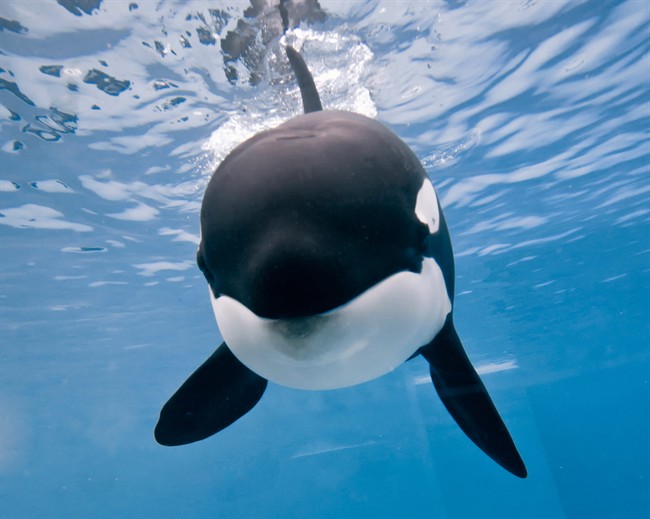Amusement parks mean business, and expect big profits.

Marine shows and the chance to get up close to dolphins and killer whales are often a big draw for theme parks. But new laws, along with social pressure, are putting the squeeze on facilities that keep marine mammals in Canada.
New restrictions in Ontario ban the breeding and acquisition of killer whales. Marineland, in Niagara Falls, is the only park that will currently be affected.
Meanwhile, SeaWorld’s controversial yet popular whale shows have kept it a top attraction in the United States.
READ MORE: SeaWorld responds to ‘Blackfish’ criticism, as musicians cancel performances
SeaWorld Parks and Entertainment had 23.4 million visitors in 2013. The group maintains eleven theme parks in the United States. According to official reports, in 2013 SeaWorld generated revenue of $1.46 billion.
READ MORE: California bill would end SeaWorld killer whale shows
SeaWorld has a robust social media presence, boasting its work to protect aquatic life. SeaWorld encourages people to join its “Truth Team,” to promote the organization’s work “using our resources and expertise to help animals all over the world.”
North of the border, admission to Ontario’s beleaguered Marineland doesn’t come cheap. Total cost for a 2015 adult day pass is $48.53, with a junior day pass at $40.62. The park has come under fire in recent years for alleged poor treatment of workers and deplorable conditions for animals.
Marineland’s remaining killer whale, Kiska, no longer performs due to old age. On its website the park says it “remains committed to the continuing health and welfare of all the incredible animals at Marineland.”
Vancouver Aquarium, a wildly popular Stanley Park fixture, has pushed hard to keep its research-and-rescue work on dolphins and whales. The aquarium argues important research would suffer if whales were banned and the facility ended its captivity program. The aquarium defends its stance on its website.
“In 1996, Vancouver Aquarium became the first aquarium in the world to make a commitment to no longer capture cetaceans from the wild for display. We now only accept and care for whales, dolphins and porpoises (cetaceans) that were born in an aquarium or were rescued and deemed non-releasable by an appropriate government authority.”
READ MORE: Vancouver Aquarium takes Park Board to court over restrictions on cetacean program
The aquarium credits more than 1,500 staff and volunteers who are “deeply committed to protecting our oceans.”


Comments